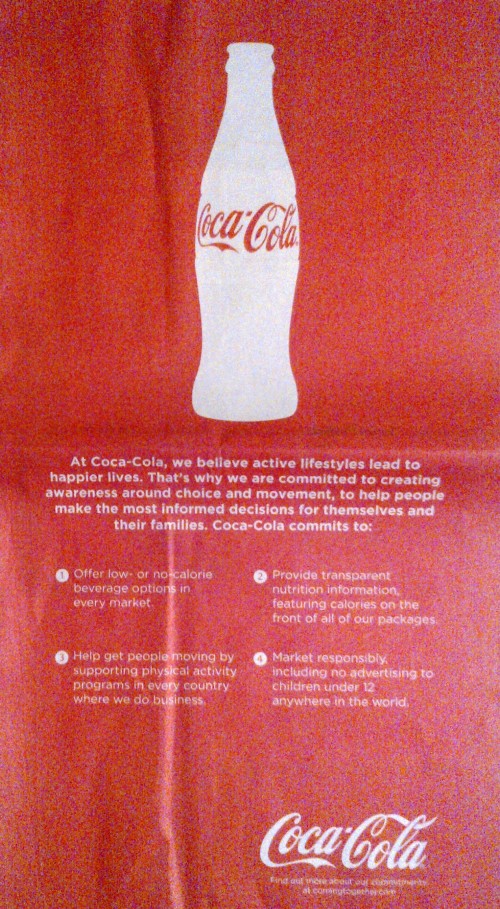Soda taxes: the new frontier
If I read the tea leaves correctly, soda taxes are on their way. Kelly Brownell and Tom Friedan broached the idea earlier this year. York state tried and failed to implement them.
Since then, as we learn more about the role of sugary drinks as a factor in obesity, public health support for the idea is growing. Last week, Jim Knickman, President of NYSHealth wrote an op-ed in the New York Post in favor of the taxes. Now the New England Journal of Medicine – as prestigious a journal as they come – is publishing another article from Brownell, Frieden, et al on the public health and economic benefits of taxing sugary soft drinks.
And the evidence accumulates daily. Children and adults who habitually drink sodas are more likely to be obese and have worse diets than those who do not. The latest study from the California Center for Public Health Advocacy and a policy research group at UCLA makes just this point.
The study found that 41 percent of children (ages 2 – 11), 62 percent of adolescents (ages 12 – 17) and 24 percent of adults drink at least one soda or other sugar-sweetened beverage every day. Regardless of income or ethnicity, adults who drink one or more sodas or other sugar-sweetened beverages every day are 27 percent more likely to be overweight or obese.
The result of all this is what the New York Times is calling in its print headline, “tempest in a soda bottle.” I’d call it a Category 5 hurricane.
As I love to point out, it did not used to be OK for kids to drink sodas all day long. Now it is. Taxes might encourage some changes in these recent practices. It will be interesting to watch this idea progress.
Later in the day: as for pushback, here is a link to the ad from the “Americans Against Food Taxes.” Why am I thinking this is an astroturf client of the Center for Consumer Freedom? Just a wild guess.


